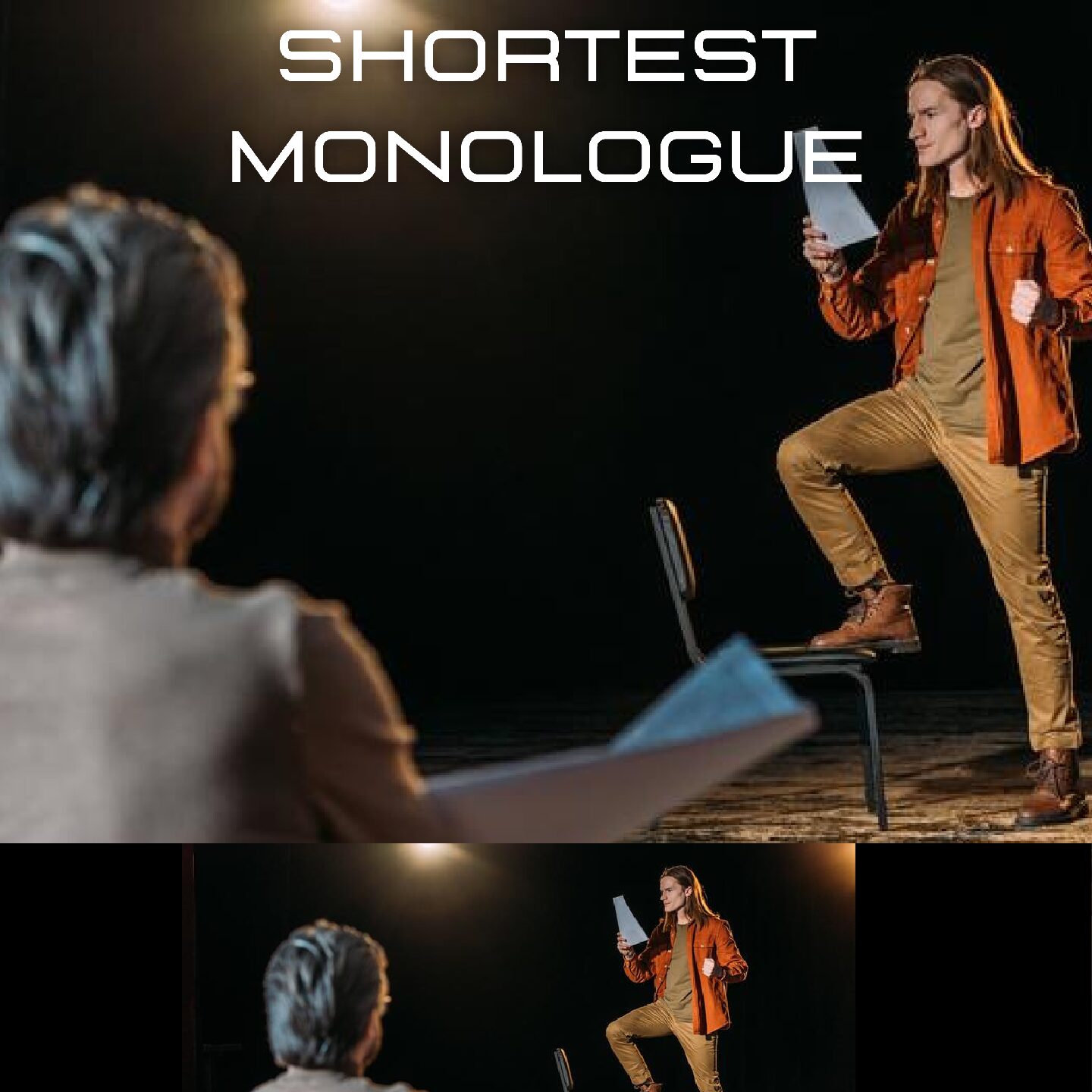In theater, actors often show their talent through monologues. But not all monologues are long. Some of the most powerful ones are just a single sentence.
They can show a lot about a character or move the story along in a big way. Get ready to be amazed by how much emotion and meaning can be packed into just a few words!
shortest-monologueThe Power of Brevity: Exploring the Shortest Monologue in Literature
In literature, stories are often rich with words, creating detailed worlds and characters. But there’s a special kind of writing that’s just one sentence long – the shortest monologue. It’s surprising how much impact just a few words can have, showing that you don’t need a lot of words to make a big statement.
One famous example comes from Shakespeare’s play “Hamlet.” The main character, Hamlet, says just three words:
“To be, or not to be…” (Hamlet, Act III, Scene I)
This short line is heavy with meaning. It shows Hamlet’s deep thoughts about life, death, and his need for revenge. The dots at the end make you think more, leaving you to imagine what else he might be feeling.
Shakespeare’s skill is in packing so much feeling and big ideas into just one sentence. It makes us think about ourselves and the big questions in life.
The power of short monologues isn’t just in Shakespeare’s work. Many playwrights and writers have used short, impactful lines. In Samuel Beckett’s play “Waiting for Godot,” Vladimir says just two words:
“Nothing to be done.”
This short line shows the play’s main idea about existentialism. The characters’ actions, or lack of them, show how we humans try to find meaning in a world that might not have any.
The shortest monologue isn’t just in plays. In Ernest Hemingway’s story “The Old Man and the Sea,” the main character, Santiago, a tired fisherman, says one word after a hard fight with a big marlin:
“Fish…”
This one word says a lot about Santiago’s strength and his love for nature. It shows his respect for the fish and his understanding that he might not win the fight.
Short monologues don’t just affect readers or audiences right away. For writers who want to learn, these tiny pieces of writing teach important things
- The Importance of Concision: Not every thought requires elaboration. Learning to condense meaning into powerful and succinct prose strengthens overall writing.
- Show, Don’t Tell: The shortest monologues demonstrate the effectiveness of using actions and context to convey emotions and character depth, rather than explicit narration.
- Evoking Emotion: A single line can trigger a cascade of feelings within the reader. This emphasizes the importance of choosing language deliberately and with emotional impact.
-
